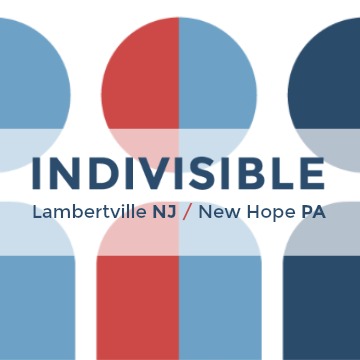Contributed by Deb Kline.
“You’ve always had the power, my dear. You just had to learn it for yourself.”
Glinda, the Good Witch
Among the issues attendees at the Indivisible Lambertville / New Hope November Community Gathering highlighted as important is the issue of accountability. We recognize that as an electorate, until quite recently we’ve been relatively remiss in holding our government officials accountable. We’ve been shaken out of the belief that the Constitution automatically ensures accountability through the three separate branches that are designed to hold one another in check, and through regular, free elections. We are coming to understand that accountability starts with a good look in the mirror, accepting our role and responsibility to keep a watchful eye on the government, and to actively communicate with those who SHOULD be beholding to the citizens of the U.S..
Political accountability refers to the responsibility or obligation of government officials to act in the best interests of society or face consequences. It seems obvious that public officials should be held responsible for their actions. Legal accountability concerns the mechanisms by which public officials can be held liable for actions that go against established rules and principles.
DemocracyWeb.org says this about accountability:
“Accountability and transparency tends to help create better policies and stop the abuse of power. The more the public knows about the government’s actions, the better judgements it can make about public policy. This is especially so in the case of abuse of power…. Even if leaders are not forced from office, the uncovering and investigating of malfeasance or inappropriate actions can sometimes bring about positive changes in leaders’ governance or behavior. Still, there is significant concern within democracies about the corrupting and corrosive impact of private interests in the funding of elections and how this affects public policy and laws. This is especially so in the United States.”
The basic elements of accountability are outlined In a 1979 speech by former Comptroller of the U.S., Elmer Staats, entitled “Who is Accountable? To Whom? For What? And How?”:
- The transmission of information regarding the actions and decisions of the person or organization being held accountable.
- Someone to receive the information who will examine it and take necessary actions.
- A means by which the information can be used to improve performance, correct deficiencies or reward superior service.
On the last bullet, Staats and others highlight elections as the primary recourse of the public for holding elected officials and their appointees accountable. While undoubtedly valid, in this day and age we can no longer wait for Election Day. By then, unfortunately, the horse has left the barn and the damage may be done.
Information is crucial to the ability to hold elected officials accountable. Information about what government officials are doing is not always easy to come by, however, and accurate information is even harder to ascertain when nearly anyone with access to the Internet can be a publisher. Further, objectivity in media has given way to bias and opinion, as well as the tendency to selectively circle the wagons around a particular story while others that may be equally important are overlooked. Finally, many of us suffer from information overload as it becomes impossible to sort through, absorb and respond to the quantity of data that comes at us on a daily basis and still maintain a somewhat normal life.
As we become more organized as a movement, we are also learning how to manage the requirements of accountability. It’s essential that we individually align around those areas that are of most concern and demand access and transparency to the information needed to take action well before the election. Show up in local and state offices, at district headquarters of our Senators and Representatives. Call for or host public forums. Share what you learn with others who will care but may be focused elsewhere – we need to be educated by people we trust. Resolve to become a force to step up and show up, to link arms with like-minded people determined to save and improve our Democracy for all people.
So yes, accountability begins with you, but you are not a lone wolf crying in the woods. Indivisible Lambertville / New Hope is your community and conduit of like-minded people begging to be informed, educated and activated. We have much work to do.
_______________________
1Accountability and Transparency: Essential Principles http://democracyweb.org/accountability-principles
2https://www.gao.gov/assets/190/185445.pdf



